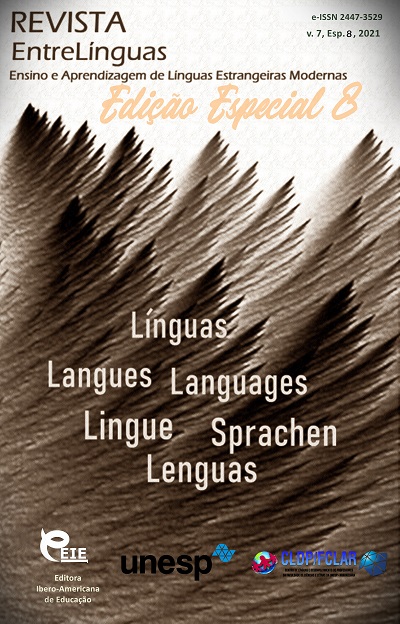The correlation between language learning and regional development
DOI:
https://doi.org/10.29051/el.v7iesp.8.16379Keywords:
Language, Quality education, Language strategies, Regional developmentAbstract
In the prevailing era, Language and quality education possess a vital role to play in improving the development of regions and economies. Education systems and language strategies executed by various nations rely on their individual cultural, political, historical, and economic aspects. The paper deals with the correlation between language learning and regional development. Plus, the tasks, the solution of which will contribute to the effective implementation of regional sociocultural projects, are defined. To meet the study’s aim, a descriptive-analytical method is taken into account. The peculiarities of the development and implementation of regional sociocultural projects in small towns and villages are revealed. Based on the results obtained, the influence of primary education quality is more vital than the influence of secondary education quality. At the same time, the effect of the English language on the development process is highly inevitable.
Downloads
References
Kovrova O.D. Forecasting the risks and opportunities of socio-cultural design in a rural settlement / O.D. Kovrova // Laws and trends in the development of science in modern society: collection of reports of the international scientific-practical conference. - Ufa, 2015. - P. 208-210.
Miroshnichenko E.V., Bovkunova Y.V., Genenko O.N. The study of the system providing formation of professional motivation for young professionals of cultural and leisure institutions in the Belgorod region // The World of Science, Culture, Education. - 2019. - № 6(79) - P.65-68.
The number of urban and rural population of the Russian Federation. All-Russian census of the Russian Federation. Official site of the All-Russian census of the population. [Electronic resource]. - Mode of access: www/perepis-2010.ru (Date of access: 14.05.2020).
Downloads
Published
How to Cite
Issue
Section
License

This work is licensed under a Creative Commons Attribution-NonCommercial-ShareAlike 4.0 International License.
Os manuscritos aceitos e publicados são de propriedade da Revista EntreLínguas. Os artigos publicados e as referências citadas na Revista EntreLínguas são de inteira responsabilidade de seus autores.
Transferência de direitos autorais – autorização para publicação
Caso o artigo submetido seja aprovado para publicação, já fica acordado que o(s) autor(es) autoriza(m) a UNESP a reproduzi-lo e publicá-lo na EntreLínguas, entendendo-se os termos “reprodução” e “publicação” conforme definição respectivamente dos incisos VI e I do artigo 5° da Lei 9610/98. O artigo poderá ser acessado pela rede mundial de computadores (Internet), sendo permitidas, a título gratuito, a consulta e a reprodução de exemplar do artigo para uso próprio de quem a consulta, desde que haja a citação ao texto consultado. Essa autorização de publicação 328 EntreLínguas, Araraquara, v. 1, n .2, p. 323-328, jul./dez. 2015 não tem limitação de tempo, ficando a UNESP responsável pela manutenção da identificação do(s) autor(es) do artigo. Os artigos publicados e as referências citadas na Revista EntreLínguas são de inteira responsabilidade de seus autores.











